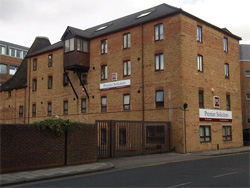- Residential Conveyancing
- Will Writing
- Probate
- Tax Planning & Trusts
- Commercial Property
- Company & Commercial
- Litigation
- Employment
- Family
- Immigration
- Notary Public
- Other Services for Individuals
FAQs about Leases
What is a commercial lease?
Why should I have a written lease agreement?
Who are the parties to the lease?
What is a guarantor or surety?
Who signs the lease?
What are leasehold improvements?
What is the tenant allowed to do with the premises?
What is automatic renewal?
What is an FRI lease?
What does assigning a lease mean?
What does subletting a lease mean?
A commercial lease is a legally binding contract made between a landlord and a tenant. Under the lease, a tenant is given the right, by the landlord, to use certain property for a business or commercial activity for a period of time for money paid to the landlord.
Why should I have a written lease agreement?
You should have a written lease agreement because it is much easier to enforce, as the terms of it have been written down and thus neither of the parties are able to deny something that they have agreed upon.
Who are the parties to the lease?
The parties to a lease are the landlord (technically known as the lessor) and the tenant (technically known as the lessee).
What is a guarantor or surety?
A guarantor or surety is a person who takes upon themselves the responsibility of paying the landlord directly for any losses that s/he suffers as a result of the tenant being unable to pay the rent or otherwise breaching the tenancy agreement.
The landlord and the tenant.
What are leasehold improvements?
Leasehold improvements are costs incurred in permanently improving the leased property. Usually, they are fixed assets.
What is the tenant allowed to do with the premises?
The tenant can only use the premises in a way which has been agreed upon by the landlord. Should the tenant wish to use the leased property for any other purpose that is not stated in the lease agreement, s/he should contact the landlord to obtain their consent.
Automatic renewal simply means that the lease continues after the end of the lease period until either the tenant or the landlord gives notice to the other party that they would like to terminate the lease.
An FRI lease means that the Tenant is liable for all maintenance, repair and insurance costs.
What does assigning a lease mean?
It means completely transferring all rights to occupy the premises for the rest of the term from the current tenant to a third party.
What does subletting a lease mean?
Subletting means that the rights to use the property under a lease are transferred by the current tenant to a third party for a part of the remaining term of the lease.
Contact Our Specialist Commercial Law Team for Commercial Lease Advice

Arrange to meet one of our Commercial Lawyers to discuss your commercial lease at our office in Bedford.
Please note that the advice provided on this webpage is not to be relied on wholeheartedly. If you have any queries please do not hesitate to call Premier Solicitors on 01234 35 80 80.
© Copyright 2015 - Adviser Pro - All Rights ReservedDesigned, Developed and Licenced by Adviser Pro © 2015









